`How China ‘disappeared’ Australian journalist Cheng Lei
Four years ago, journalist Cheng Lei came up with the slogan for China’s English state broadcaster. A year ago, she ‘disappeared’ in Beijing. What happened?
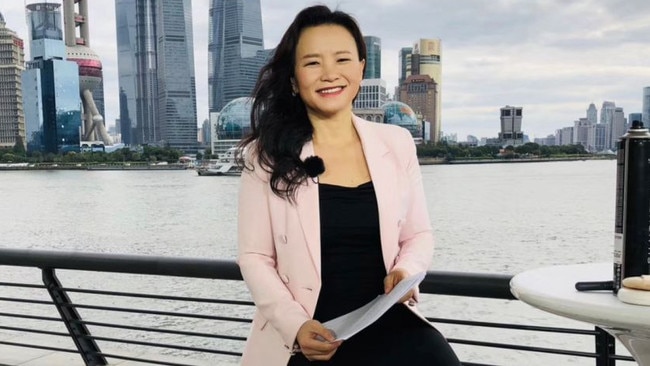
Cheng Lei’s colleagues were horrified.
The single mother of two children — one of the highest-profile Australians living in China — had been nabbed by secret police in Beijing. That was August 13 — a year ago, this Friday.
Her co-workers in the headquarters of the China Global Television Network, China’s English-language state broadcaster, only found out when someone on the Beijing breaking news desk saw a report in international media.
Staff in the futuristic office, which looms over Beijing’s CBD, were stunned. None of their bosses had mentioned that the anchor and face of CGTN’s business coverage had “disappeared”.
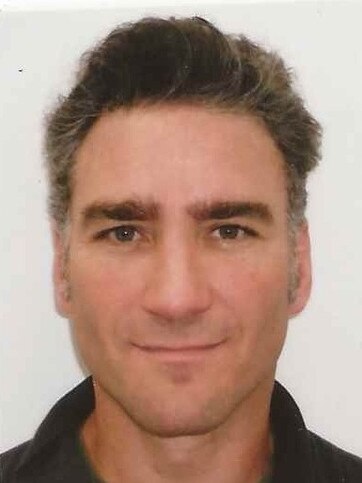
Eight days earlier, management had made them sign a strange legal document, called a nondisclosure undertaking.
“Everyone — all the foreign staff — were given one to sign,” Tadek Markowski tells The Australian. “You can draw your own conclusions from that.”
When the news broke, Markowski immediately wrote an email to his duty manager.
“Make no mistake, this will send shockwaves through the entirety of the foreign staff,” he wrote, in correspondence shared with The Australian.
“Cheng Lei has children back in Australia, as do myself and others. Her kids must be worried sick … Imagine what all of our families must now be thinking.”
Within weeks, Markowski quit the network and joined his family in Queensland, ending a seven-year career at CGTN.
“I found it very difficult to be at my desk, in the building, and pretend that it was business as usual,” he says, speaking publicly for the first time about his friend and colleague’s ordeal.
The horrific plight of Cheng has coincided with the most profound breakdown in Australia’s political relationship with China in 50 years. Along with two Canadians, Michael Spavor and Michael Kovrig, hers is the most notorious detention of a foreign national in China. On Wednesday, Spavor was given an 11-year sentence for “spying and illegally providing state secrets to other countries”. But this is much more than a bilateral story.
A different time
Cheng — who turned 46 in a Beijing prison cell in June — has been engulfed in a political crackdown overseen by President Xi Jinping. It has spread across business, education and all of Chinese society.
State media was never going to escape it.
Xi took over as the Communist Party’s leader in November 2012, weeks before Cheng started at China’s English-language broadcaster. Back then, talented journalists were joining the expanding network from all around the world. It was an optimistic time, back when engagement with China was still America’s — and Australia’s — foreign policy.
Now many are leaving, disturbed by Beijing’s increasing editorial intrusion.
Christine Schiffner left her job as the director of news gathering at CGTN’s Washington DC bureau weeks before Cheng was detained. Schiffner, who previously worked for Germany’s public broadcaster, ARD, said the network’s coverage of Xinjiang made her increasingly uncomfortable.
“It was just a line I couldn’t cross,” she tells The Australian in her first interview since leaving the state broadcaster.
The interference ramped up in her last six months after a new Chinese manager was installed to oversee the American operations.
As the coronavirus spread around the world, things only got worse. “Beijing wanted us to follow up on these stories and find these people to prove that the virus did not originate in Wuhan but originated somewhere else,” says Schiffner.
On a visit in 2016 to CGTN’s parent network, China Central Television — with which it shares its Beijing office — Xi could not have been clearer about his media philosophy: “Media run by the party and the government are the propaganda fronts and must have the party as their family name.”
That sort of editorial intrusion took a while to reach CGTN, at least in America.
“I can only imagine what Cheng Lei went through in Beijing. I had a little bit more freedom living in the States — but in Beijing, what do you do?”
A Facebook diary entry Cheng posted in February, during the beginning of the coronavirus outbreak, suggests her news sense was bumping into the tightening state media strictures.
“Last night I had dinner with my friend Haze who’s also in TV, we are both lobbying our bosses to let us go to Wuhan to report, and not succeeding,” she wrote. By December that friend — Haze Fan, a Chinese journalist working at Bloomberg — had been detained as well on “suspicion of endangering national security”.
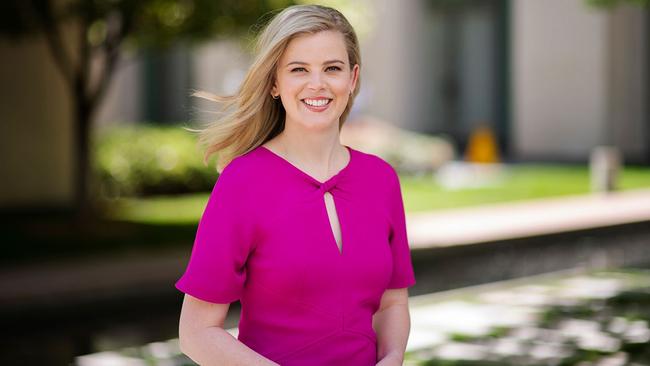
‘See the difference’
Cheng joined the state broadcaster from America’s CNBC, where she had worked for almost a decade. Her star rose fast. So did her fan base.
Annelise Nielsen, now Sky News’s Washington correspondent, worked at CGTN’s Beijing headquarters for a year in 2016.
“When I got there everyone said, ‘You’ve got to meet Cheng Lei!’,” Nielsen recalls. “They just loved her. She was adored.”
The University of Queensland commerce graduate was hugely respected in the Beijing journalism community.
Management liked her too. She regularly won the station’s quarterly excellence awards.
And — incredibly — to this day, CGTN’s official slogan, “See the difference”, was the three-word entry Cheng made in an all-staff competition in 2017 when the network was rebranding.
Cheng’s videos and profile page were purged from CGTN’s websites in the days after her sudden disappearance. But “See the difference” remains the network’s slogan, emblazoned around its Beijing headquarters and still running across the channel. It is part of the reason former colleagues are in disbelief at what has happened to her.
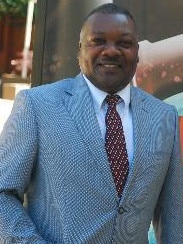
“I am so sorry and disheartened that the Chinese authorities would accuse her of anything subversive,” says Clint DeLoatch, a veteran of CNN who worked with Cheng for three years.
“It’s a catastrophe,” says Daryl Guppy, a board member of the Australia China Business Council, who still writes a weekly column for CGTN.
For the first six months after her arrest, the Australian was held in what China’s authorities euphemistically call “residential surveillance at a designated location” in a secret facility in Beijing.
That involved sleep deprivation, intimidation by multiple interrogators and other abuse, as China’s Ministry of State Security tried to gain evidence to build a case against her.
In February, Cheng was moved into a different prison cell, with two other inmates, after she was accused of “unlawfully supplying or intending to supply state secrets or intelligence to an overseas organisation or individual”.
No further details have been made public. No trial date has been set. She has not been allowed to speak to her children — now 12 and 10 — who are living with her elderly mother in Melbourne.
Australian diplomats, including ambassador Graham Fletcher, have been given access to monthly consular meetings over video. The summaries are nightmarish. April’s visit began with Cheng being brought into the communication room blindfolded, masked and handcuffed, accompanied by four guards.
At her July visit, friends report Cheng somehow kept her sense of humour, as the guards oversaw her stilted exchange with Australia’s diplomats.
“She’s a tough person. She has a big well, I think you’d say, of toughness,” says Markowski.
“It’s just so shocking,” says Schiffner. “What’s the advantage for the Chinese of keeping her in prison? I just don’t understand.”


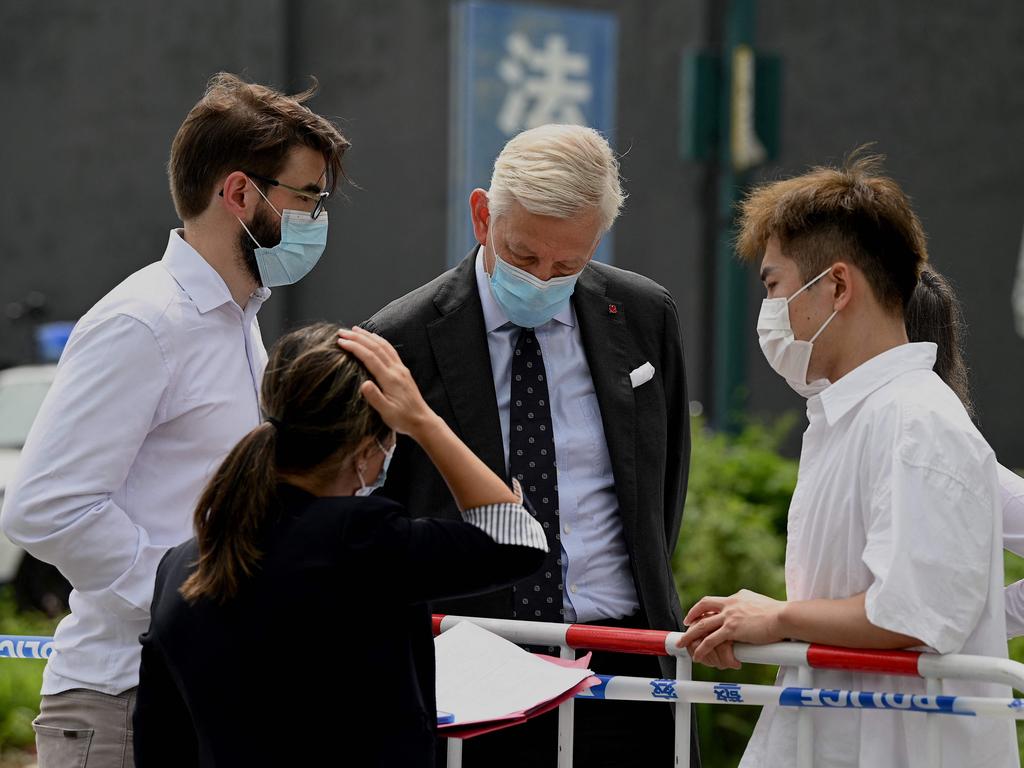

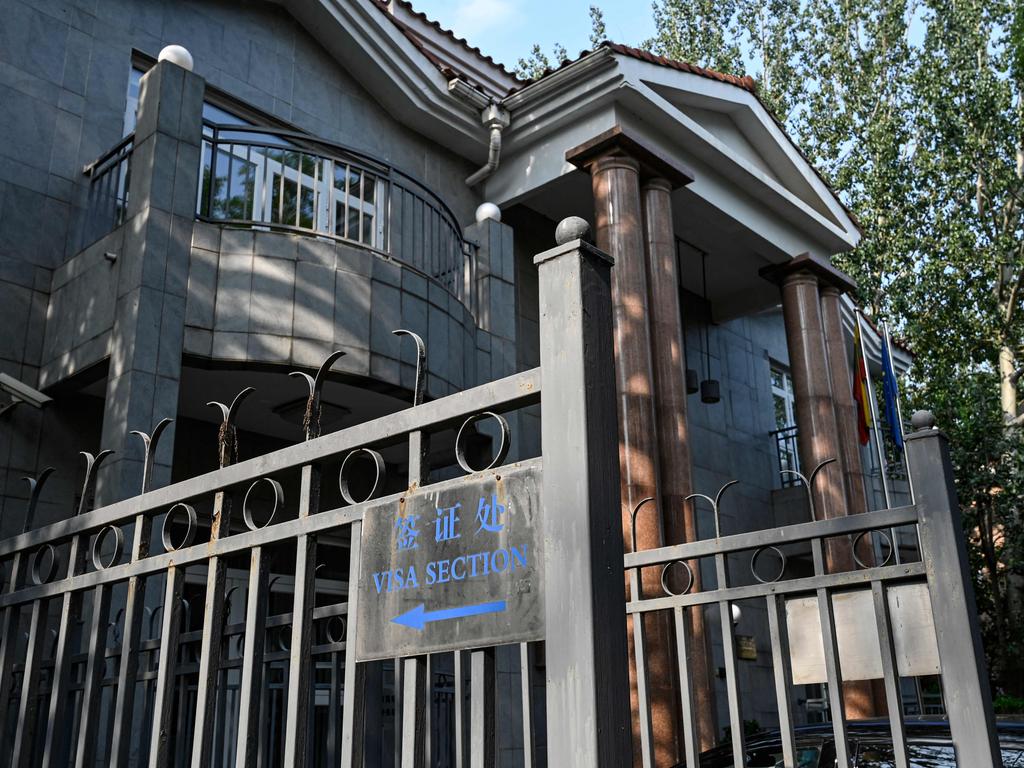
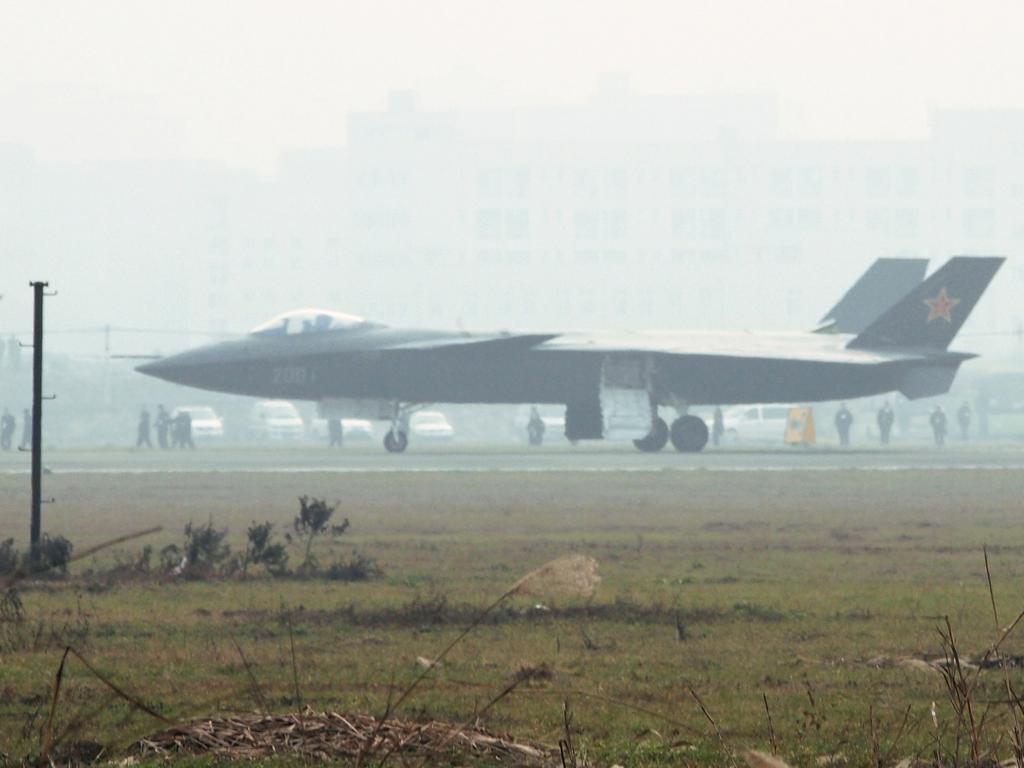


To join the conversation, please log in. Don't have an account? Register
Join the conversation, you are commenting as Logout